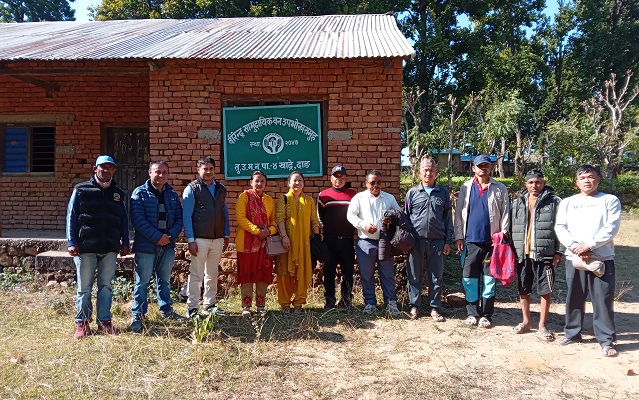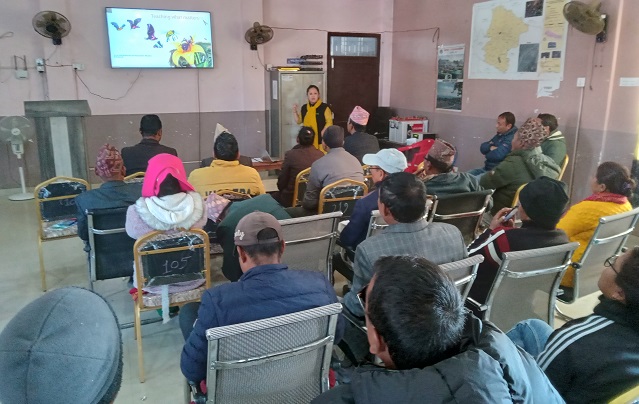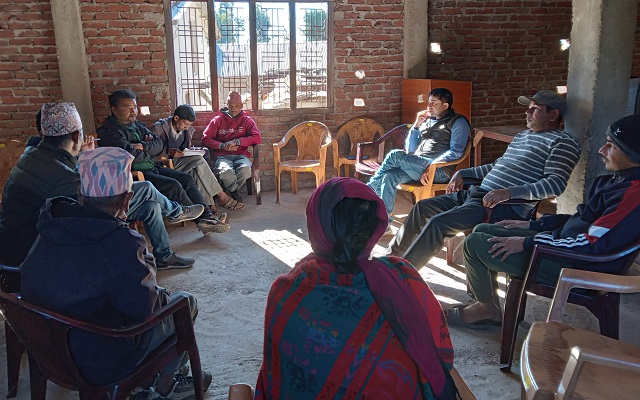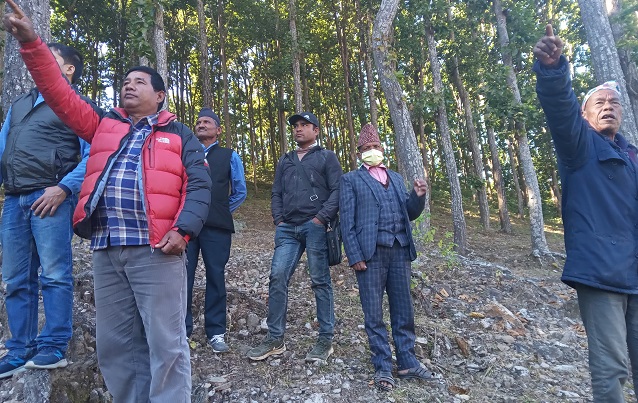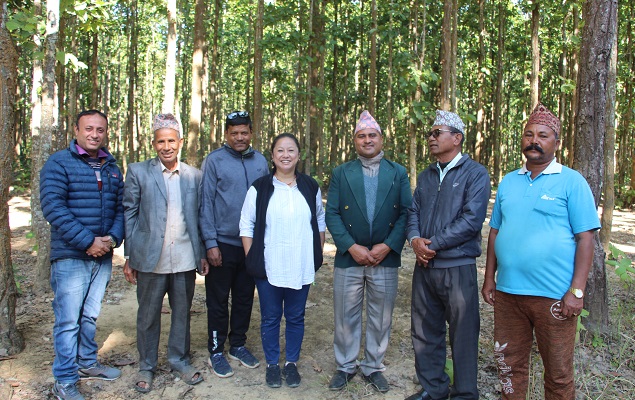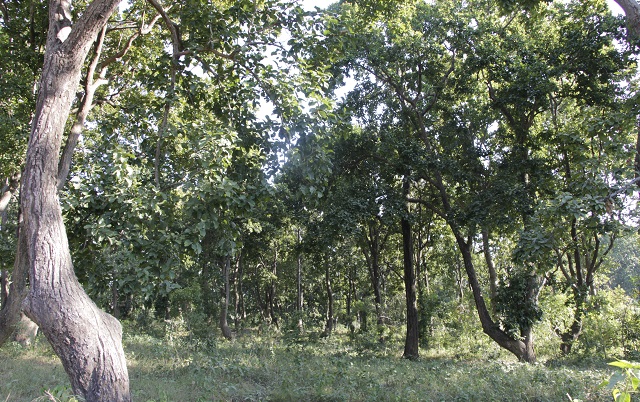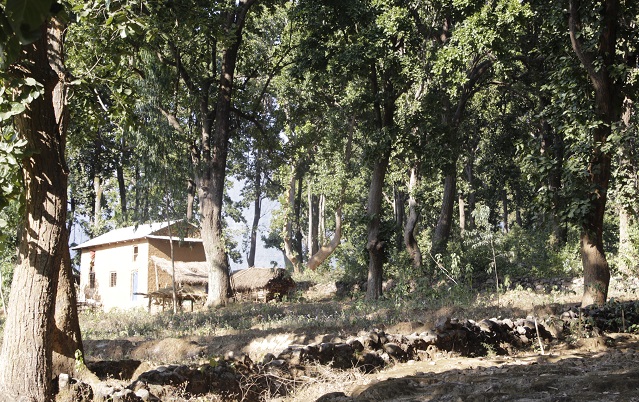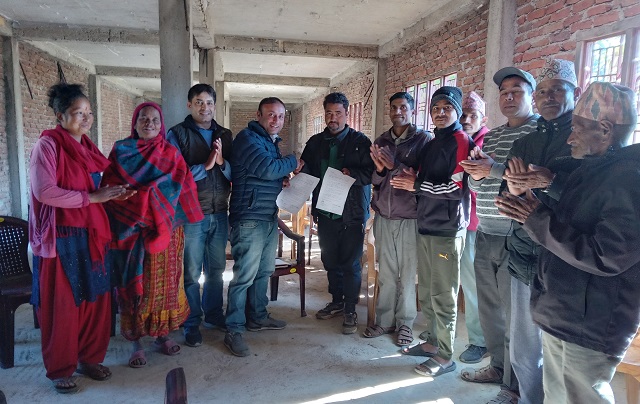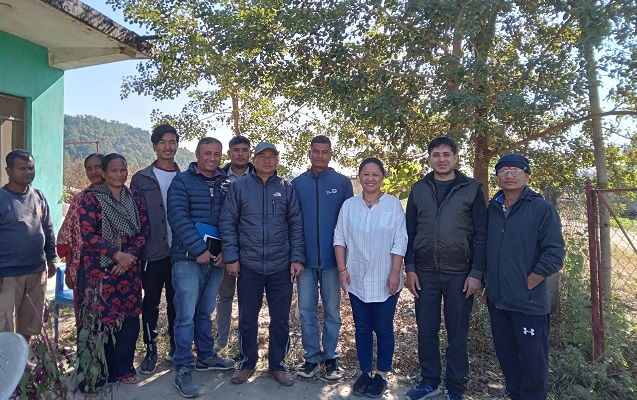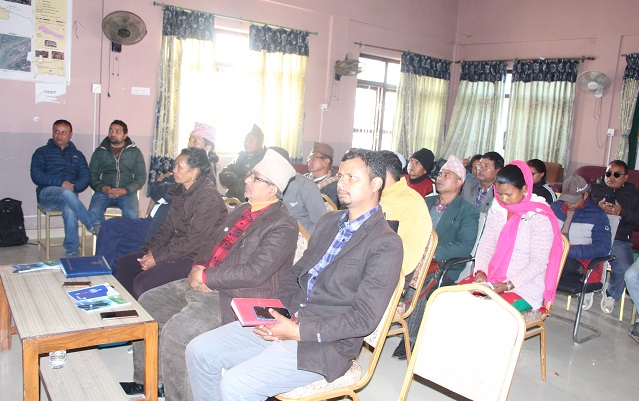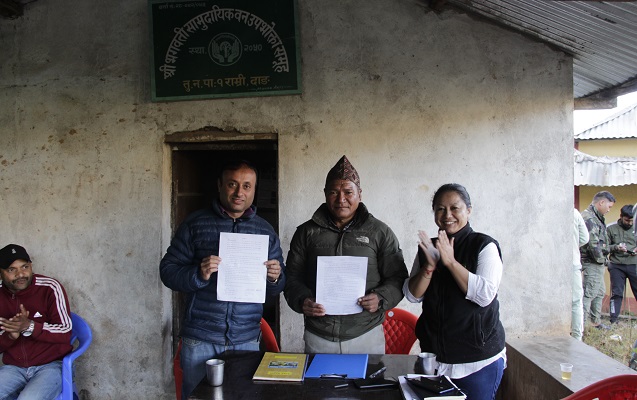Clean energy initiatives in Dang District, Nepal
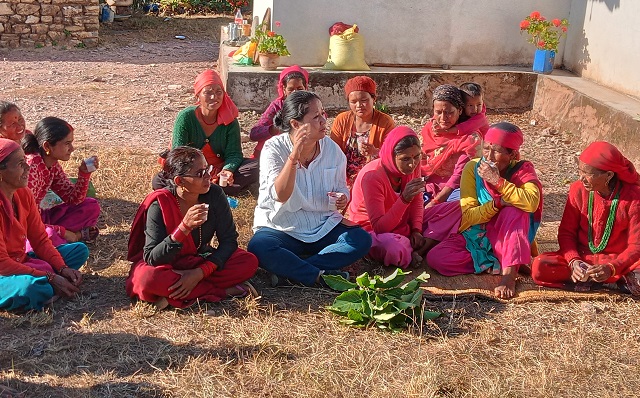
Nepal has 45 per cent of forest coverage, but the forest quality is being degraded due to immense pressure on the forest for communities’ energy requirement. Therefore, the IKI Small Grants project sets up a model to fulfil communities’ energy needs and improve forest quality. The installation of 200 biogas plants reduces greenhouse gas emissions and provides households with clean energy. In addition, the project restores 100 hectares of community forests to ensure a growing carbon stock. Trainings in sustainable forest management ensure the sustainability of the project.
INITIAL SITUATION
Tulsipur Sub-Metropolitan City is located in Dang District in the western region of Nepal. The district has a varied topography and a fragile geological structure. About 15,000 people live in an area of about 40 hectares, where 70 per cent is flat land surrounded by hills. Poverty, a high illiteracy rate, social discrimination, and heavy dependence on forest resources for fodder, firewood and food have aggravated the effects of climate change. Urbanisation has also taken its toll in the region, reducing forest cover and depleting groundwater resources. The region’s biggest threat is drought, which has led to a shortage of water for irrigation and drinking, which impacts the well-being of the local population. The lack of information on the impacts of climate change and on measures to protect natural resources has aggravated the impact of climate change in the region.
TARGET GROUP
This IKI Small Grants project targets in total 5,000 households of Tulsipur Sub-Metropolitan City of Dang Valley. Up to 200 households stand to benefit directly from clean energy biogas installation. Trees are planted on around 100 hectares, with 5,000 households benefitting directly from fodder and groundwater recharge. In addition, policy makers, planners and implementers benefit from the project. To mobilise for clean energy promotion and to spread awareness on climate change impacts, mitigation, and adaptation measures, 10 women’s groups are formed.
VIDEOS FROM THE PROJECT
APPROACH AND ACTIVITIES
The IKI Small Grants project builds climate-resilient communities through the promotion of clean energy, carbon restauration and climate change awareness, which helps to reduce greenhouse gas emissions.
Wildlife Conservation Nepal (WCN) installs 200 biogas plants to reduce greenhouse gas emissions. This is achieved through trainings focusing on the introduction of clean energy initiatives, biogas, its uses, construction, and maintenance. Further, 200 households are identified to install the biogas plants and receive training on bio slurry management, livestock shed improvement, cattle urine, and dung management. These measures decrease dependence on firewood, and provide clean energy and bio slurry fertilizer.
The IKI Small Grants project further includes the restoration of 100 hectares of ten community forests ensuring a growing carbon stock. WCN identifies restauration areas within ten community forests in coordination with community forest user groups and Tulsipur Sub-Metropolitan City (TSMC) for public open spaces. They organise four trainings on sustainable forest management for all members of the community forests. Moreover, the organisation purchases and transfers 60,000 tree and fodder saplings to restoration sites. The project further ensures that forest groups are mobilised to control the weeding in the plantation sites.
To create awareness of climate change and mitigation and adaptation strategies at the local level in coordination with Tulsipur Sub-Metropolitan City, a radio program is launched, and educational material developed and published.
LATEST PROJECT HIGHLIGHTS AND IMPACTS
- Designing and conducting an extensive household survey on biogas demand
- Formation of an expert committee and initiation of a biogas procurement process
- Cooperation with a local broadcaster: Launching a radio program on climate change, forest management, energy, natural disaster, shed management etc.
- Coordination meetings with community forest user groups
CAPACITY DEVELOPMENT
IKI Small Grants supports WCN in organisational capacity development through:
- Carbon stock management training
- Renewable energy technologies training
- Municipal energy plan preparation
ABOUT THE ORGANISATION
Wildlife Conservation Nepal (WCN) is a non-governmental organization that was established in 2002 with a vision to protect and conserve natural heritage and disseminate information on environment and wildlife issues. WCN aims to have a civil society and a community that protects the natural flora and fauna of Nepal by involving local communities, civil societies, scientific communities, and conservationists in environment protection. Similarly, it involves the various stakeholders in natural resource management for mitigating and adapting to climate change and promoting sustainable use of natural resources. In this way, the benefits that accrue reach the grassroots and at the same time natural resources are conserved.

